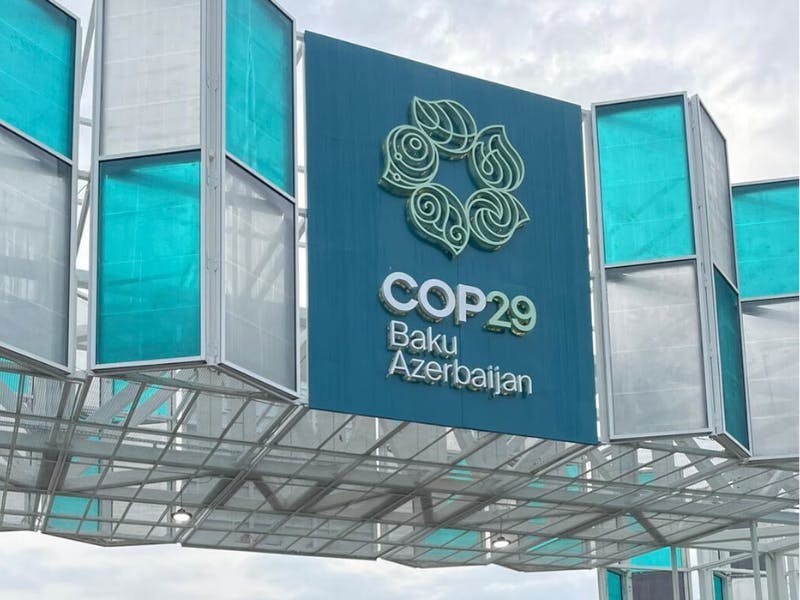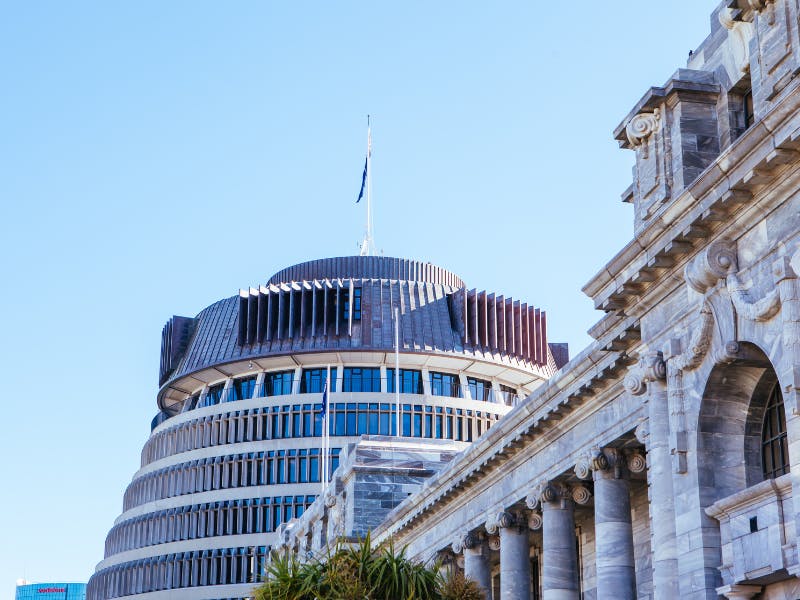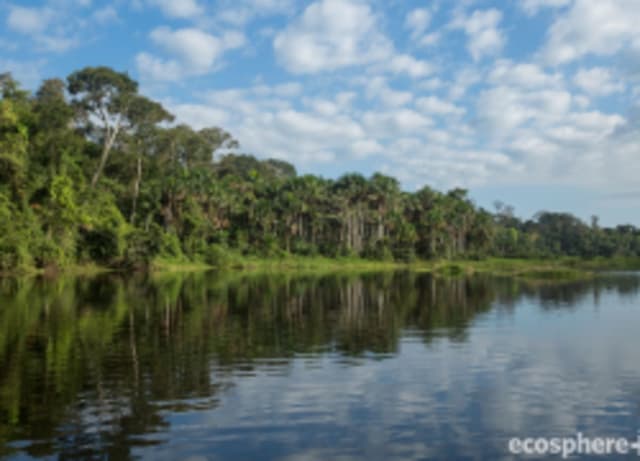Sign up. Be inspired. Get clicking.
Navigating the carbon footprint of travel: From events to corporate trips
18 December 2024
In an era marked by increasing climate concerns, the travel industry stands as a significant contributor to global carbon emissions with aviation emissions accounting for 2.5% of global CO2 emissions. From bustling events to corporate travel, the environmental impact of travel is undeniable.
This blog looks into the environmental implications of air travel for events and corporate trips. We'll explore the staggering carbon emissions linked to large-scale events like COP29, as well as the significant impact of business travel, particularly in the realm of government and corporate sectors. By understanding the scale of the issue and the potential for change, we can work towards a future where travel is more sustainable and responsible.

Event travel emissions
Large-scale events, such as conferences, summits, and festivals, often involve significant travel. Attendees from around the world converge on a specific location, generating substantial carbon emissions from air travel. The environmental impact of these events can be substantial, particularly when considering the scale of attendance and the distances traveled.
The recent COP29 climate conference in Baku, Azerbaijan, highlights the environmental impact of large-scale events. While the conference focused on climate change, a significant number of attendees arrived via private jets, a mode of transportation with a disproportionately high carbon footprint (5-14 times more CO2 emissions emitted than commercial flights per passenger).
Corporate travel emissions
Corporate travel is a significant contributor to greenhouse gas emissions. A study by the World Resources Institute estimated that business travel accounts for 15-20% of global air travel emissions. This substantial contribution stresses the need for businesses to prioritise sustainable travel practices.
The carbon footprint of government travel can be significant. In New Zealand, a recent investigation by PureSEO revealed that certain Members of Parliament (MPs) have significant travel-related emissions, particularly due to air travel. While parliamentary duties necessitate travel, there's a growing need for transparency and accountability in reporting and offsetting these emissions. Some MPs and political parties are already taking steps to reduce their carbon footprint, such as opting for virtual meetings and offsetting unavoidable emissions.

So how do we reduce the carbon footprint of travel for events and corporates?
To minimise the environmental impact of travel, both for events and corporate purposes, a range of strategies can be implemented:
- Virtual and hybrid events: Using technology to reduce the need for physical attendance.
- Sustainable venues: Choosing venues with sustainable practices, such as energy-efficient buildings, local sourcing, water conservation, waste reduction and offsetting what they can not reduce
- Climate conscious transportation: Encouraging attendees to use public transportation, carpooling, cycling or if air travel is unavoidable, flying economy class.
- Carbon offset programmes: Investing in carbon offset projects to compensate for unavoidable emissions.
- Optimised travel schedules: Consolidating multiple trips into one to minimise air travel.
- Partner with sustainable travel agents: Choose travel agents that prioritise sustainability and can advise on low carbon emitting modes of transport, accommodation and offer carbon offsetting programs to help travelers compensate for their emissions.

Leading by example
CarbonClick CEO, Dave Rouse, who attended COP29, exemplifies the importance of responsible travel. By choosing economy class flights and combining business meetings with his recent attendance to COP29, he demonstrated a commitment to minimising his carbon footprint.
Dave highlighted in the recent PureSEO report on NZ MP travel emissions that “CarbonClick believes corporations should report their carbon emissions and take active, calculated steps to reduce them. Members of Parliament—the rule makers—should lead by example. We all have a responsibility to reduce emissions wherever we can; it’s the most effective form of climate action. For those unavoidable emissions, our role is to ensure carbon offsetting remains a trusted and meaningful option in the toolbox. Transparency and accountability are essential for building a sustainable future”.
As individuals, businesses, and governments, we have a collective responsibility to reduce our carbon footprint. By making conscious choices and embracing sustainable practices, we can mitigate the environmental impact of travel and contribute to a healthier planet.
17 South Street
Auckland 1010
New Zealand
info@carbonclick.com- -
- X
Subscribe now to stay up to date with CarbonClick, carbon offsetting and climate action.
By signing up you agree to our Privacy Policy.


